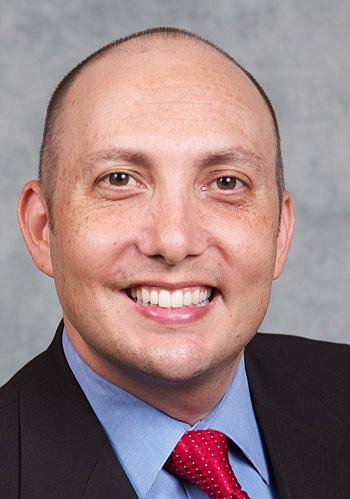
The legal profession needs to be more sensitive to mental health.
We are living in desperate times. The legal system is being pushed to its limits in all divisions — criminal cases, dependency cases, divorce and custody matters, bankruptcies, families losing homes, employees losing jobs and business owners fighting to keep their businesses alive.
Meanwhile, supporting governmental and nongovernmental organizations are being asked to do more with less as demand from the indigent and struggling is reaching an all-time high.
And health care is in a state of flux, the likes of which we never have seen. This is the perfect storm for those suffering from mental health conditions.
Lawyers are uniquely positioned to see the manifestations of mental health conditions, which makes us uniquely positioned to assist in directing those afflicted toward appropriate resources.
This can only happen effectively by educating our profession on the symptoms and conditions of, and treatments and resources for, mental disease and illness.
There are several ways in which our profession has unique exposure to people afflicted with mental conditions, illness and disease.
Many people enter the legal system because of mental disease or illness, including drug and alcohol addiction.
Our prisons and our criminal dockets are filled with such people. Divorces and custody battles often emanate from the mental conditions of one or more family members. Many children in our juvenile justice system are afflicted with mental disease or defects.
As elder care attorneys can attest, as our aged population increases so too does the incidence of Alzheimer’s and dementia-like conditions.
The legal process itself can — and often does — trigger latent mental conditions, including depression and anxiety.
The stress of testifying, being incarcerated, losing a home, a business, a marriage or children, can adversely affect mental health.
In addition, victims of crime, child abuse and other domestic violence almost always require some degree of mental health care.
Our profession itself is high-stress, and, as a result, members of our profession have a higher-than-average incidence of addiction and certain mental health conditions.
If a lawyer does not personally face these conditions, he or she almost certainly will encounter colleagues that do.
This exposure compels us to learn more and do more about mental health conditions, illness and disease.
I am not suggesting that we need to become therapists. But we do need to recognize that solving a legal problem only goes so far toward resolving the bigger problem.
All too often, as lawyers, we address the simple issue presented to us — what we are paid to do — without appropriate consideration to the underlying or dynamic factors that have precipitated, and will likely repeat, the issue presented.
From a societal perspective, this is wasteful and inefficient. From a professional perspective, we are simply not going far enough to perform the “counselor” function that the phrase “attorneys and counselors at law” calls upon us to perform.
How do we address this challenge?
First, we need to become better educated. The Jacksonville Bar Association will take a positive step in this direction in June when we hold the inaugural Legal/Medical Symposium on Mental Health.
We are working closely with key stakeholders in the legal and medical communities to organize an informative and inspiring afternoon to educate and exchange information so that we can begin the process of better sensitizing the legal community to mental health issues, treatments and resources. More details, including the exact date, will follow.
For now, please give thought to how we can make this a meaningful and first-class event. I personally encourage and welcome your input.
Second, we need to hone our skills of sympathy, empathy and compassion. At no time more than now have these attributes been more necessary for the practicing lawyer.
They not only serve as the foundation for a trusting relationship in which mental health and its impacts can be frankly discussed, but they can actually reduce stress, anxiety and the deleterious conditions that can result.
Third, we must forge a greater relationship with the health care and social service communities so that we can more holistically care for, treat and address those whom we encounter as clients and in other capacities.
There is too much suffering, too much impairment and too much waste to continue to treat legal problems in a legalistic silo.
There is so much good knowledge about, and there are so many valuable resources for, mental health concerns.
Our profession must better integrate that knowledge and those resources into solving the legal situations with which we are presented.
We owe it to ourselves, our community and our profession to take these and other steps to permanently learn, know and do more about mental health.